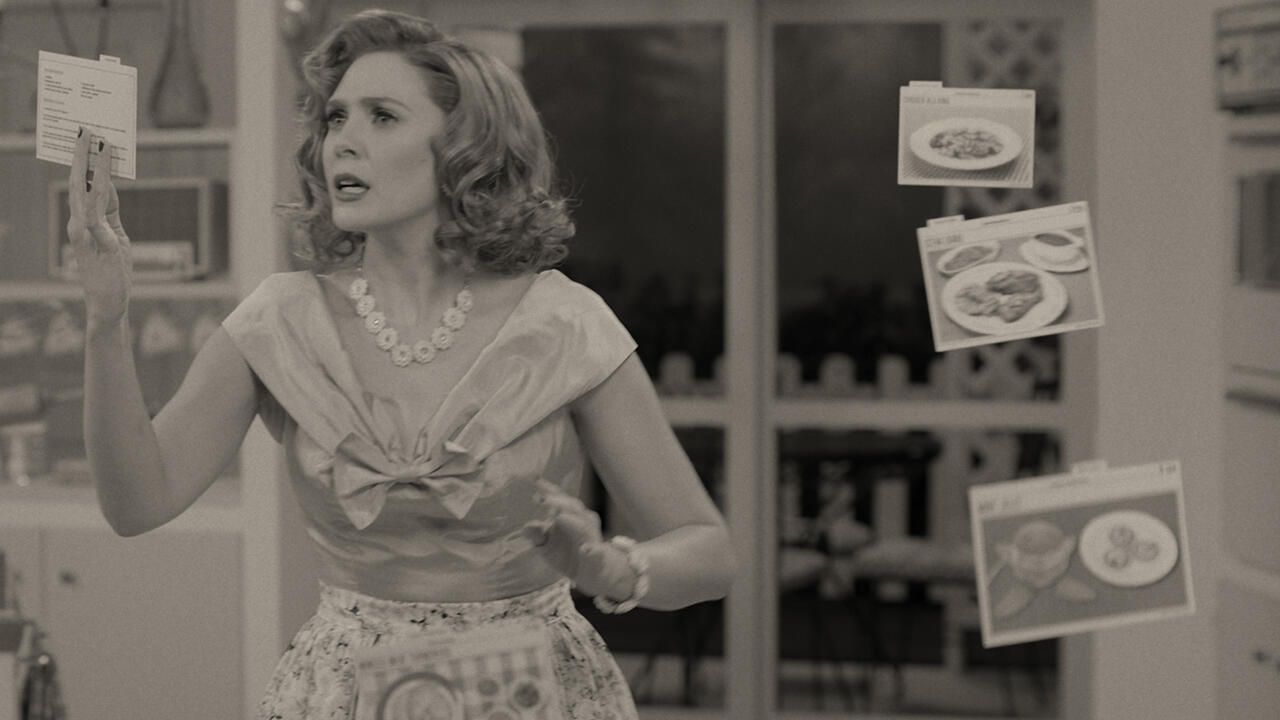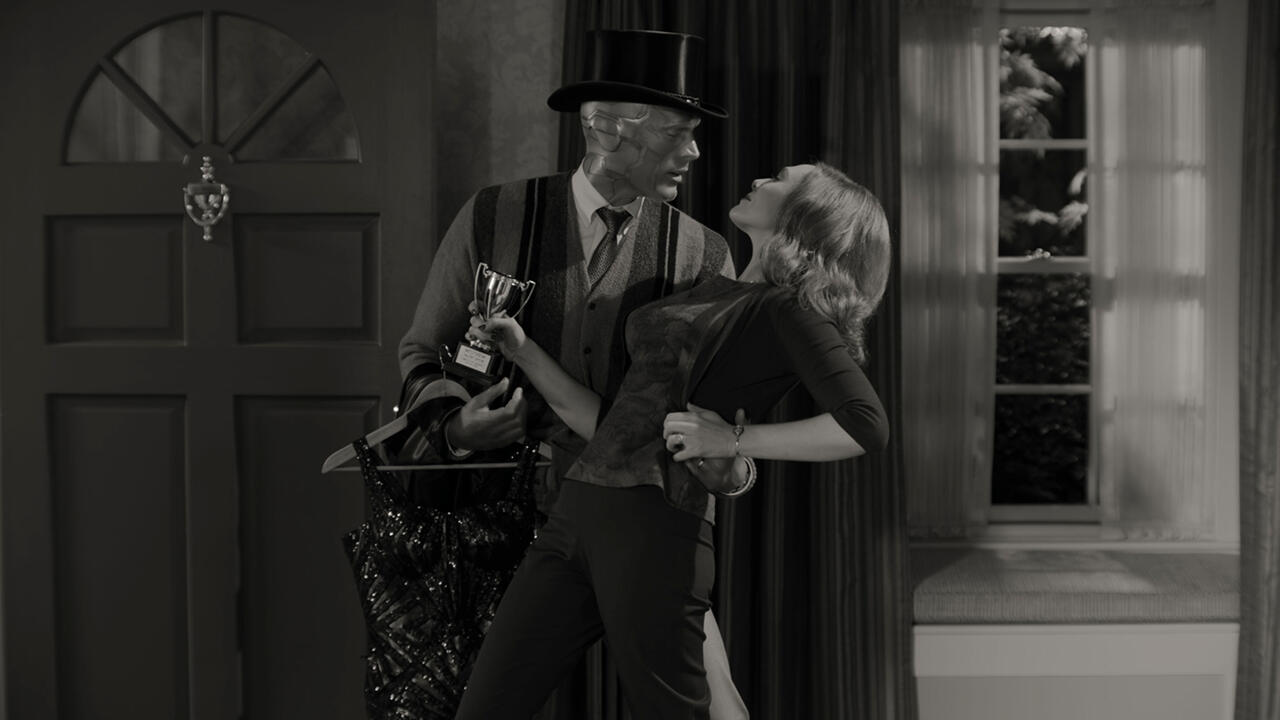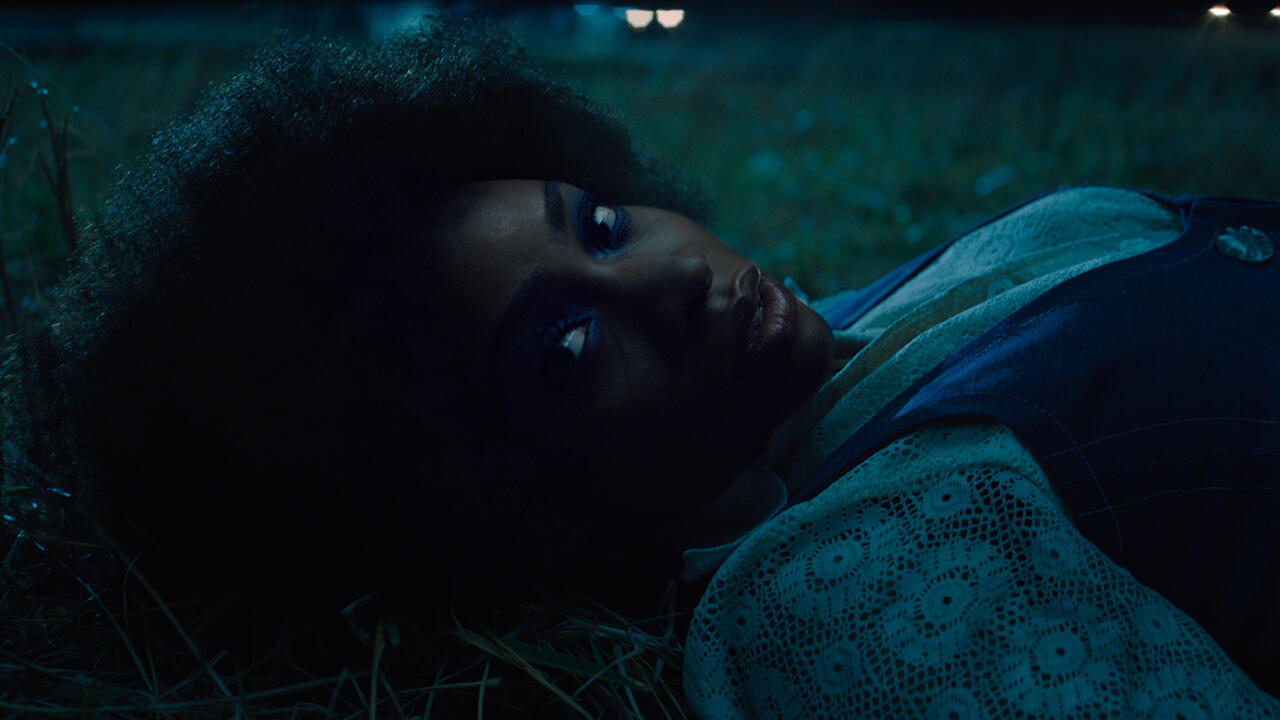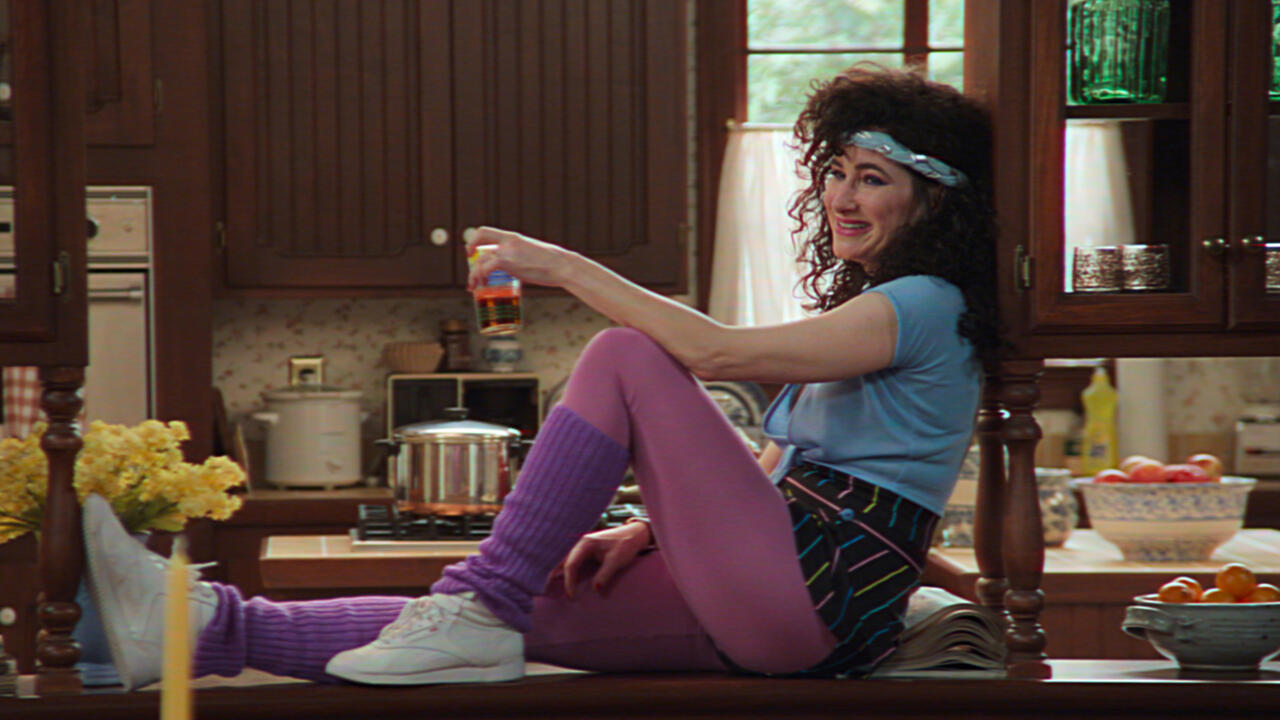The Marvel drought is over. With no MCU movies released since 2019’s Spider-Man: Far From Home, Marvel Studios’ cinematic universe has reopened with its first TV show on the Disney+ streaming service. WandaVision picks up some time after Avengers: Endgame and finds the characters of Wanda (Elizabeth Olsen) and Vision (Paul Bettany) living their lives in a sitcom world, with different episodes highlighting different eras of the genre.
In the three episodes provided for review, the show recreates the feeling of sitcoms from the ’50s, ’60s, and ’70s on the surface, while something more sinister is brewing underneath. WandaVision wants you to relish in these classic eras of TV, while also asking why the characters are there, how it happened, how it connects to the larger Marvel universe, and–most importantly–how long it will be before the characters themselves figure out what is happening.
After redefining what superhero franchises are over the last 12 years, Marvel Studios is stepping into something of a new genre of storytelling with WandaVision. Taking two of the MCU’s heroes, who happen to also be locked in a tragic love story, and dropping them into a vintage comedy is a risky move. Thankfully, though, it works like a charm.

WandaVision’s commitment to the premise of revisiting classic sitcom settings is endearing. Gone, for the most part, are the cutting-edge visual effects, sweeping musical scores, and over-the-top superpowers MCU fans have come to expect from the franchise;What you get instead is more akin to shows like Bewitched or I Dream of Jeannie, in which “flying” objects are hanging from fishing wire and transformations are shown via jump cuts that never quite match–all techniques that those who worked on the show went to great lengths to recreate. It’s a good thing they did because anything else would be distracting. Instead, it’s easy to sink into the world of the show, almost as if you’re watching reruns late at night on TV Land.
That comfort allows WandaVision to build a sense of foreboding below the surface. Starting pretty early on in the first episode, it’s clear that something isn’t quite right–whether it’s the main characters being unsure about small details in their life prior to the show or lines of dialogue that show cracks in the armor of their black-and-white reality. And, honestly, not knowing what’s happening, in this instance, is scary, and the show does a good job of keeping it guarded, only giving small hints and clues.
For Marvel fans who don’t appreciate the classical TV setting quite as much, this will likely be what draws you in further. WandaVision wants you guessing and theorizing about the mystery that’s unfolding, taking logical and illogical leaps in hopes you’ll figure out what the endgame (no pun intended) is. And with it being a weekly release on Disney+, you’ll have plenty of time to do it. Plus, as the trailer shows, eventually more familiar aspects of the MCU will creep their way into the show over the course of its nine episodes.

However, that might not be something all viewers will be interested in waiting for. After all, most of the MCU thus far is made up of movies, which tell a complete story in one sitting. WandaVision, meanwhile, is taking a slow burn approach to its mystery. It’ll be weeks before you get any concrete answers, if they come at all. If you stuck with it, though, based on the first three episodes, it’s going to be worth the journey.
Just as much an achievement as the aesthetic of the show and the story it’s telling, though, is the cast. Bettany and Olsen, in particular, are incredible leads. Bettany’s Vision is played as essentially a bumbling husband trying to navigate a world he doesn’t quite fit into. If that sounds like the version of the character Bettany has played in the films, that’s because this take on Vision closely aligns with what we’ve seen previously.
Now, however, he seems unable to figure out what it is that makes him not fit in this particular world. His core remains the same, though. He’s an all-knowing entity that cares deeply for Wanda, even if he is unsure of himself.

Wanda, on the other hand, feels greatly evolved from where we last saw her in Avengers: Endgame. Throughout the MCU franchise, Wanda has never been too clearly defined (and I’m not just talking about her ever-changing accent). Since her introduction in Avengers: Age of Ultron she’s primarily been used as a side character that exists to drive the plot forward.
With WandaVision, though, Olsen is attempting to let Wanda stand on her own two feet. Gone is the vaguely European accent she sometimes used for the character. In its place is a voice that sounds heavily inspired by I Love Lucy star Lucille Ball. She’s confident in a way MCU fans haven’t seen in Wanda before. And after the events of Avengers: Endgame, you can’t blame her for having that confidence.
It also can’t be understated how funny Olsen and Bettany are in these roles. That might be one of the most surprising things about WandaVision. While there was always an awkwardly comedic dynamic to their relationship in the past, they’re outright hilarious in WandaVision as they completely embrace the tropes and humor of sitcom classics.

They also happen to be surrounded by a very talented supporting cast. Of note, Katheryn Hahn stars as their wacky neighbor Agnes, who happens to drop by quite a bit to gossip with Wanda and complain about her husband Ralph. Hahn is perfectly cast in this role, with her remarkable comedic talents easily blending in with the surreal sitcom setting.
Then there’s Teyonah Parris. Parris plays Monica Rambeau, who the MCU first introduced as a child in 2019’s Captain Marvel. Now grown, Monica finds herself in WandaVision’s sitcom world. How she got there and what her role will ultimately be remains to be seen but, as with Hahn, Parris’s comedic sensibilities work well with the show’s sense of humor.
In all, WandaVision is an undeniable success. Marvel Studios attempted something they hadn’t tried before and wound up with a show that’s somehow a classic family sitcom that is also propelling forward the storytelling of the universe of epic films that has been unspooling for over a decade. Now you will just have to wait for the slow burn narrative to reveal itself.
Source: GameSpot


